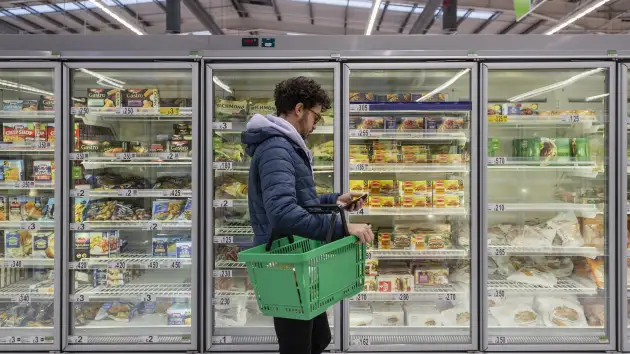UK prices dropped to 2.3% in April, according to the Office for National Statistics. This is closer to the Bank of England’s target rate, but it’s lower than what was expected. Core inflation, which excludes energy, food, alcohol, and tobacco, went down to 3.9% in April from 4.2% in March.

The fighting between Russia and Ukraine, big suppliers of food and energy, has messed up how much gets made, traded, and delivered around the world. This has made prices shoot up.
UK prices went down more than expected in April, according to the Office for National Statistics. This news made traders change their minds about the chances of the British central bank cutting interest rates in June.
In March, prices had gone up by 3.2%, but in April they dropped to 2.3%. This is the first time since July 2021 that inflation has been below 3%, getting closer to the Bank of England’s target of 2%.
Even though experts thought prices would drop even more to 2.1%, they only went down to 2.3%.
The cost of services, which is important for the UK economy because it shows how much prices are going up within the country, only went down a little bit, from 6% to 5.9%. This was higher than what experts expected.
When you take out energy, food, alcohol, and tobacco from the calculations, inflation dropped from 4.2% in March to 3.9% in April.
Many people were expecting prices to go down because energy prices went down compared to last year. But investors were more interested in seeing how much prices were going up for other things, especially services. The Bank of England had hinted that they might lower interest rates in the summer, but they said they needed to see more data before making a decision.
After hearing this news, traders didn’t think there was much chance of an interest rate cut in June anymore. Before the announcement, they thought there was a 50% chance, but after, they thought there was only a 15% chance. They also thought there was a 40% chance of a rate cut in August, down from 70%.
Unlikely to Cut Rates in June
Suren Thiru, an economics director, said both core and services were not as good as expected. He thinks it’s unlikely that there will be a rate cut in June because of worries about inflation. However, he thinks some people might still want to cut rates in the future.
The European Central Bank might be the next big bank to lower rates, while the U.S. Federal Reserve seems less likely to do so until at least September.
Paul Dales, a chief economist, said the new inflation numbers make it unlikely for the Bank of England to cut rates in June, and maybe even in August. He’s worried about the high services number, which means domestic inflation is going down slower than expected.
The UK Prime Minister, Rishi Sunak, thinks inflation is now where it should be. His Conservative Party wants the economy to get better because they’re not doing well in the polls for the upcoming election.
Even though the UK economy is growing a bit, the Bank of England Governor, Andrew Bailey, says the bank will make its decisions about rates independently, without thinking about the election.




